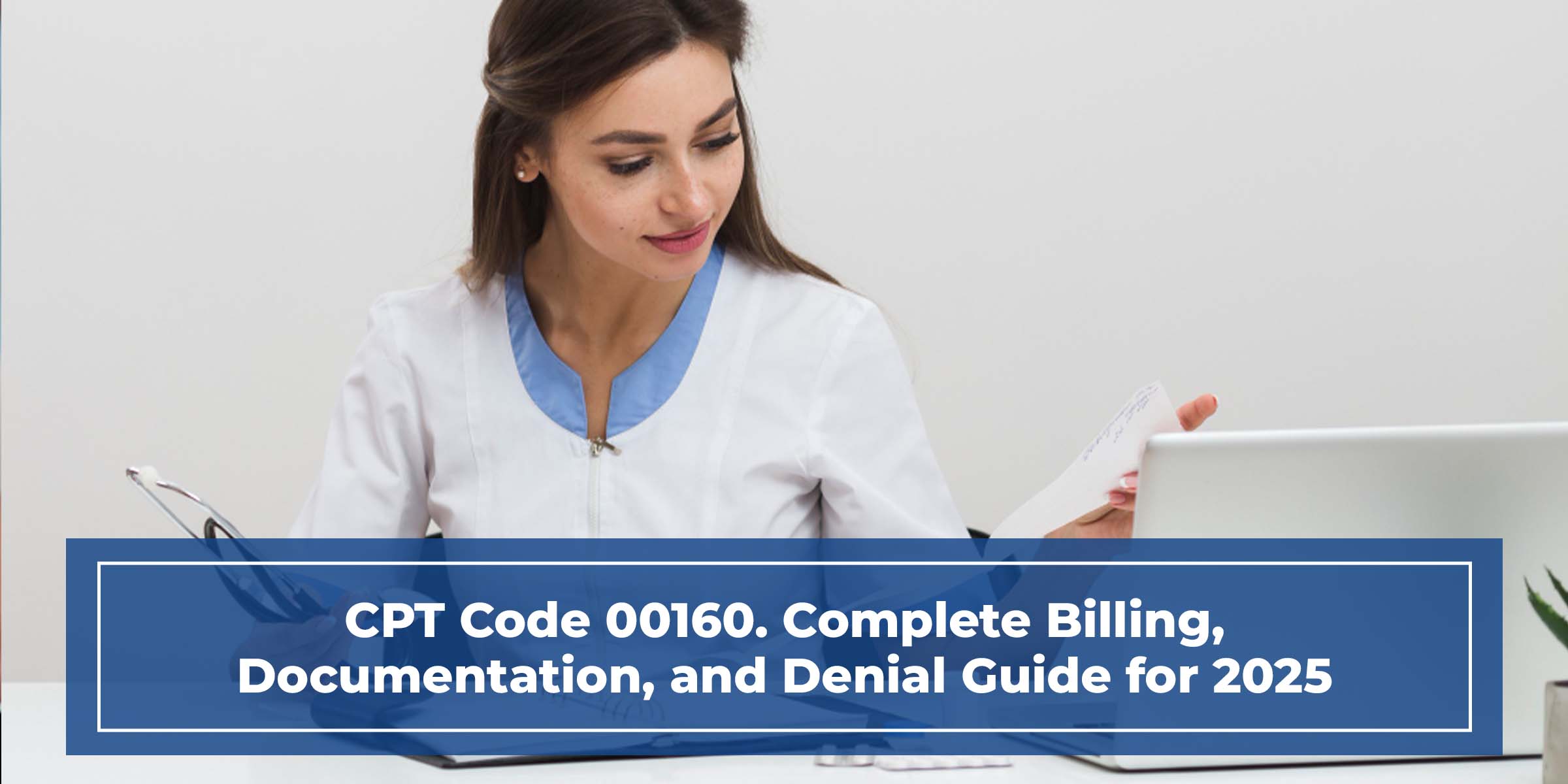If you are familiar with refused claims marked with the CO-16 denial code, you understand the cost and disruption these rejections can cause. According to industry data, around 86% of healthcare claim denials are preventable, with CO-16 being among the most prevalent. This refusal implies that a claim is missing needed information or includes errors, resulting in payment delays that impact your cash flow.
This blog examines the causes behind CO-16 denials, including typical associated comment codes, and illustrates how these denials result in large revenue losses. Within nine months, one 25-bed hospital received over $2 million in disallowed claims due to CO-16. Understanding how to resolve these denials can save your company thousands in revenue.
You will receive clear, actionable advice based on current billing practices and compliance standards. Whether you work as a medical biller, coder, claims specialist, or healthcare provider, this article will help you identify the source of CO-16 denials and handle them effectively to decrease claim rejections and optimize your revenue cycle.
Overview of CO-16 Denial Code
This section defines the CO-16 refusal code and why it is one of the most common rejections in medical billing. Understanding the underlying issue helps to decrease rework and protect reimbursement.
What Does CO-16 Denial Code Indicate?
The CO-16 refusal number indicates that a claim was rejected because it lacked needed information or contained incorrect facts. This includes missing patient information, improper modifiers, and missed paperwork. Medicare, Medicaid, and commercial insurers all utilize this rejection.
This refusal disrupts income flow. According to a 2023 study by the Medical Group Management Association (MGMA), missing or incorrect information accounts for up to 20% of denials, with the majority of these errors falling under CO-16.
Why CO-16 Denials Are Common in Medical Billing
CO-16 claim denials in medical billing are frequently caused by front-end or documentation errors. Patient registration errors, insufficient medical data, or a lack of communication between billing and clinical teams are common causes of these denials.
High claim numbers, tight timelines, and changing payer restrictions all increase the possibility of CO-16 difficulties. Many clinics lack a consistent pre-billing review procedure. As a result, claims are sent out with missing fields or invalid codes.
According to Change Healthcare’s 2022 Revenue Cycle Index, over 65% of CO-16 denials are never resubmitted, resulting in irreversible revenue loss. Knowing how to fix CO-16 denials entails establishing explicit documentation checks and payer-specific submission methods.
Common RARC Codes Paired with CO-16
This section covers major Remittance Advice Remark Codes (RARCs) that are frequently associated with the CO-16 rejection code. Understanding these helps identify the specific reason the claim lacks the necessary information.
Key RARCs to Watch For
The CO-16 denial code is broad. Payers frequently attach particular RARCs to explain what is insufficient. Recognizing these combinations is critical for proper correction and appeal.
The following are common RARC codes often associated with CO-16:
| RARC Code | Description |
| N290 | Missing provider’s name or identification number. |
| M51 | Missing or invalid procedure code or service date. |
| MA130 | The claim must be submitted with corrected information. |
| N382 | Missing or invalid Explanation of Benefits (EOB) from the primary payer. |
| N265 | Required documentation to support the service or procedure is missing. |
| M76 | Diagnosis or condition is missing, incomplete, or invalid. |
Impact of CO-16 Denials on Revenue Cycle
Denied claims due to CO-16 do more than delay payments; they also burden your revenue cycle, tie up staff resources, and, if not addressed, can result in permanent write-offs. Even popular services, such as the 94010 CPT code, might result in CO-16 denials when billed with insufficient data.
Financial Cost of CO-16 Denials
Each CO-16 denial bears a financial penalty, both direct and indirect.
- According to the Medical Group Management Association (MGMA), the average cost of reworking a refused claim is $25 to $30 per claim.
- If left unresolved, denied claims can affect a provider’s yearly income by 3-5%, according to an AMA analysis.
- The CO-16 refusal code frequently causes payment delays that last from 16 to 45 days, depending on provider update schedules.
This impacts cash flow, affects provider remuneration, and raises the cost of collection. CO-16 rejections can be avoided by providing appropriate documents and verification before submitting the claim. Addressing them immediately is critical to stabilizing the revenue cycle.
How to Fix CO-16 Denial Code Issues
To handle CO-16 denial code errors, you must determine the specific cause and correct any missing or inaccurate data. Even simple operations, such as the 94010 CPT code, might result in CO-16 mistakes if essential data is incorrect.
Step 1: Review the Attached RARCs Thoroughly
Begin with the Remittance Advice Remark Codes (RARC). These codes provide a more detailed explanation for the denial. Without verifying the linked RARC, you’re operating in the dark.
- Look for codes such as N382, M51, and MA13.
- Each RARC identifies a specific problem, such as a missing modifier, an incorrect NPI, or the required documentation.
- Use the Medicare RARC code list or your payer’s explanation guide as a reference.
Step 2: Correct Missing or Invalid Information
After finding the problem, correct the particular data.
- If the denial is due to a missing modifier, please amend the claim with the relevant CPT modifier.
- If your ID or patient data is inaccurate, verify the patient’s eligibility and update the record.
- Recheck the claim form fields (Box 24, 31, 33, etc.) to confirm that all needed information is present and valid.
Step 3: Use Software and Systems to Automate Denial Management
While manual review is vital, technology helps to decrease mistakes.
- Use claim scrubbers to check for missing data before submitting the claim.
- Choose billing software that provides denial tracking dashboards.
- Set up alerts to discover patterns in CO-16 claim denials.
Conclusion
CO-16 denial code mistakes are avoidable, but they necessitate attention to claim accuracy and payer-specific standards. These denials can often result from missing information or faulty data that might have been changed before submission.
Healthcare providers and billing professionals can reduce rework, payment delays, and revenue loss by analyzing RARCs, correctly updating claim information, and utilizing structured review tools.
Consistent claim validation and cross-team communication help in ensuring that even routine processes, such as the 94010 CPT code, are billed correctly the first time. Addressing CO-16 rejections with a targeted, data-driven approach improves payment outcomes and lowers write-offs.
FAQs
What does the CO-16 denial code mean?
The CO-16 denial code indicates a claim was rejected due to missing or incorrect information. This includes errors in patient data, codes, or documentation.
What are the common reasons for receiving a CO-16 denial?
Frequent causes include missing modifiers, invalid procedure codes, incomplete patient details, or absent supporting documents.
How can I find out why my claim was denied with CO-16?
Check the attached Remittance Advice Remark Codes (RARCs) to identify the specific reason for the denial and what information is missing.
Can CO-16 denied claims be corrected and resubmitted?
Yes, once the errors are corrected, the claim can be resubmitted. Timely resubmission improves reimbursement chances.
How do I prevent CO-16 denials in the future?
Implement pre-billing reviews, use claim scrubbers, and ensure complete, accurate data before submission to reduce errors and denials.





